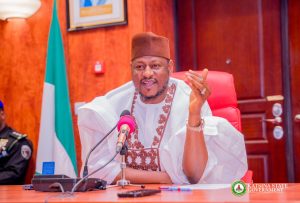France’s presidential election race is closer than expected. Here’s what to know

An incumbent president standing for election for only the second time in his life; a candidate twice convicted of inciting racist and religious hatred polling in second place; another hard-right stalwart in third and the long-dominant left of French politics in disarray. Then Russia invaded Ukraine. With Europe’s eyes fixed firmly on Russian President Vladimir Putin’s bloody war, priorities have quickly shifted: Ammunition stockpiles, high stakes diplomacy and even the threat of a nuclear strike have all entered the national debate. Campaigning has been disrupted by the crisis, and several key candidates have had to backtrack on their past support for Putin.Burnished by his experience on the world stage, most polling suggests that incumbent President Emmanuel Macron is likely to come out on top.But with just days to go before the election, his closest rival Marine Le Pen is rising in the polls, suggesting the vote could be more tightly fought than the last time the pair went head-to-head in 2017.France hasn’t reelected a sitting president for 20 years, diplomacy has trumped campaigning in the president’s agenda and with the conflict fueling a cost of living crisis, French voters aren’t facing the election many expected. Here’s what you need to know. When is the election, and how does it work?To elect their new president, French voters will likely head to the polls twice. The first vote, on Sunday April 10, sets 12 candidates against each other. These candidates qualified for the race by securing endorsements from 500 mayors and/or local councilors from across the country.If no candidate wins 50% of votes in the first round, the two contenders with the most votes will proceed to a run-off two weeks later, on Sunday April 24. Of the 12 candidates in the race, IFOP polling suggests that only five have ever garnered more than 10% of voters’ support. A second round of voting is almost guaranteed. This also isn’t the only national vote France faces this year — parliamentary elections will take place in June.Who’s in the race?The fighting in Ukraine is a long way from the bistros and cafes of France, but the conflict is certainly on voters’ minds. Just shy of 90% of French people were worried about the war in the last week of March, according to IFOP. Given the challengers’ patchy record on standing up to Putin, this is likely to play in Macron’s favor. Notably absent from the debate has been the environmental crisis. Although the importance of climate protections is gaining traction globally, France sourced 75% of its electricity needs in 2020 from nuclear energy, according to the French environment ministry. With most candidates backing the kind of nuclear development that Macron has already announced, there is little divergence on this issue.For all the fanfare that this election once promised, with a war on the European Union’s border and many voters struggling to pay their bills, France’s choice may now rest more on the next five months than the next five years.



